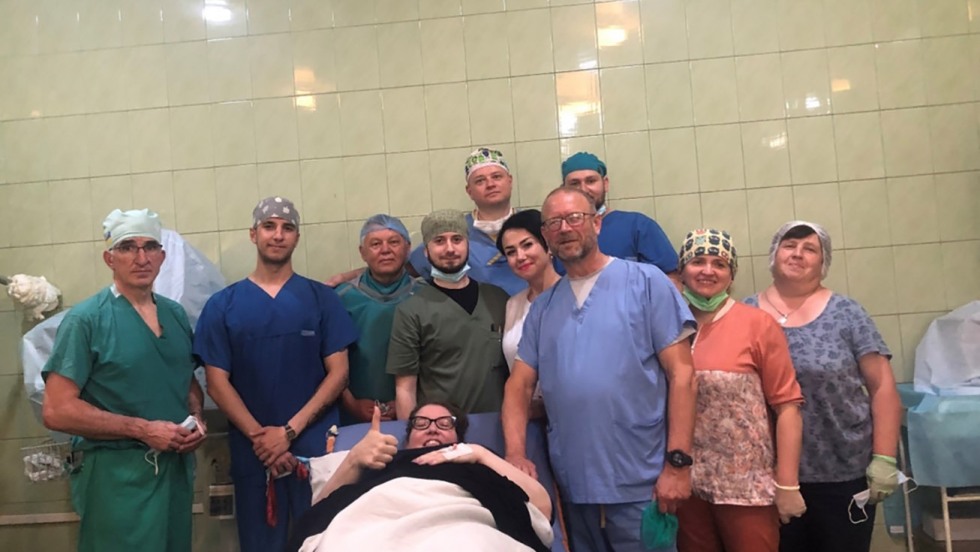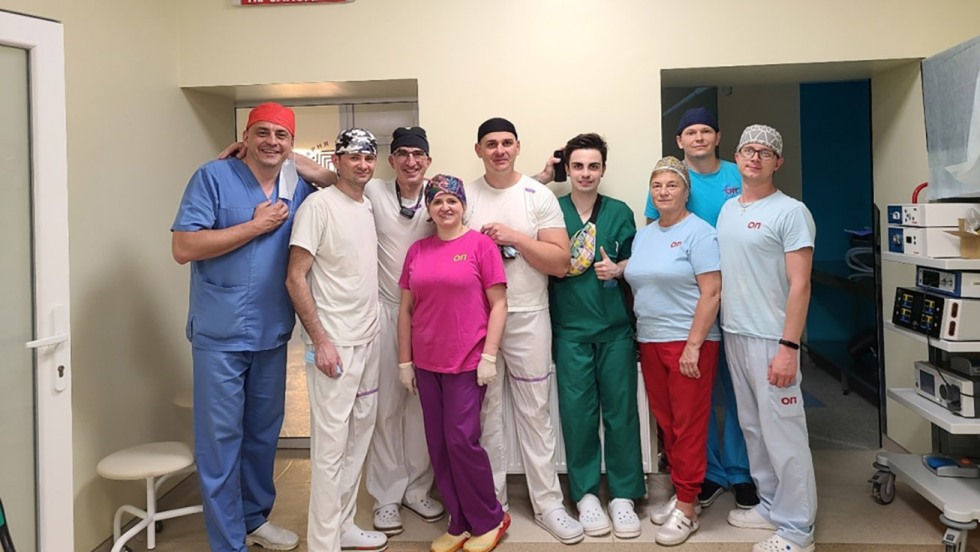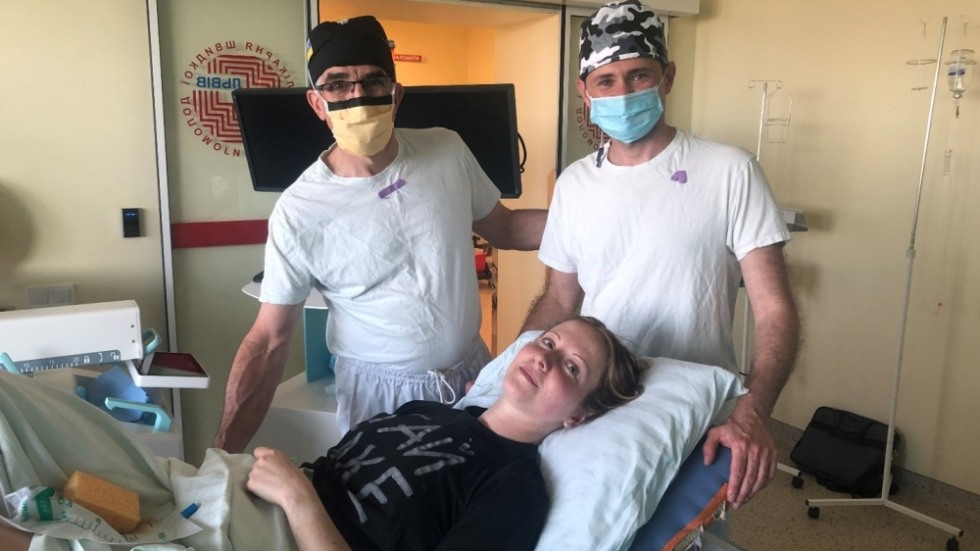Imagine being woken at 3 am by an air raid siren or hearing one in the middle of an operation wondering whether to go to the bomb shelter or to keep doing whatever you are doing. Such thoughts occurred with every wail of the siren in my 2 week trip to Lviv, Ukraine in June. I knew I was quite safe, particularly when compared to the eastern parts of the country, but reminders of the war were ever-present. I was fortunate to find a reputable NGO, Global Surgical Medical Support Group to aid civilian and military war injured by performing surgery, teaching, and providing consultation. We were also able to provide much-needed medical supplies to include those donated by our own surgery center. I traveled there with a great team of 2 other surgeons and a trauma nurse, and we were supported by former military medics for security and logistics.
As I anticipated, the war injuries ranged from the occasional closed fracture to severe such as a hip disarticulation to ubiquitous open fractures with bone loss and nerve injury. Although being able to speak Ukrainian was a great help compared to my fellow volunteers, I lacked some of the technical language needed to convey my thoughts most precisely. Nonetheless, the Ukrainian surgeons, nurses, and, most of all, the patients universally appreciated our desire to help Ukraine.
Hearing the stories of evacuated patients and their families affirmed the crazy and difficult situations of war. One such example was a woman injured on Easter weekend when an artillery shell struck her home, killing the rest of her family except for her son who was not home for the holiday. Her shattered elbow was held together with an external fixator, while her wounds healed awaiting definitive fixation of her fractures months after injury. Although we would treat such an injury differently here, such is their common practice based on resources available and techniques they are familiar with. However, the resolve that no one should live under Russian occupation is unshakeable, fueled by the knowledge of friends or family who have directly suffered from the Russian invasion.
It is reassuring to see some of the recent progress on the front, but the war continues to generate casualties. I am very thankful for all the direct and indirect support of the University Orthopedic family. I continue to maintain contact with my Ukrainian surgeon colleagues offering support and advice. Knowing that there is continued broad support for their sacrifice provides them extra strength and endurance. Conditions permitting, I will undoubtedly return.


